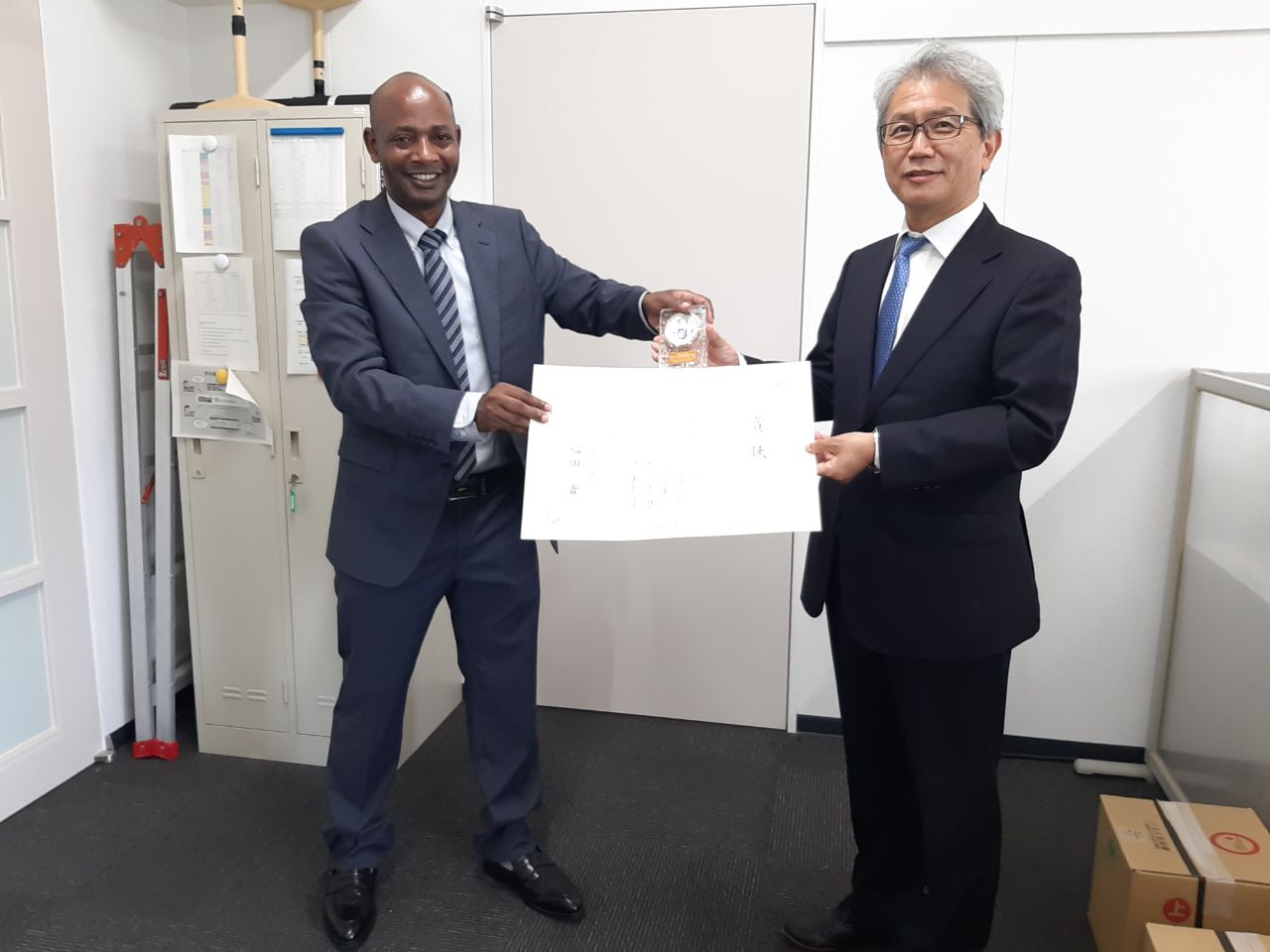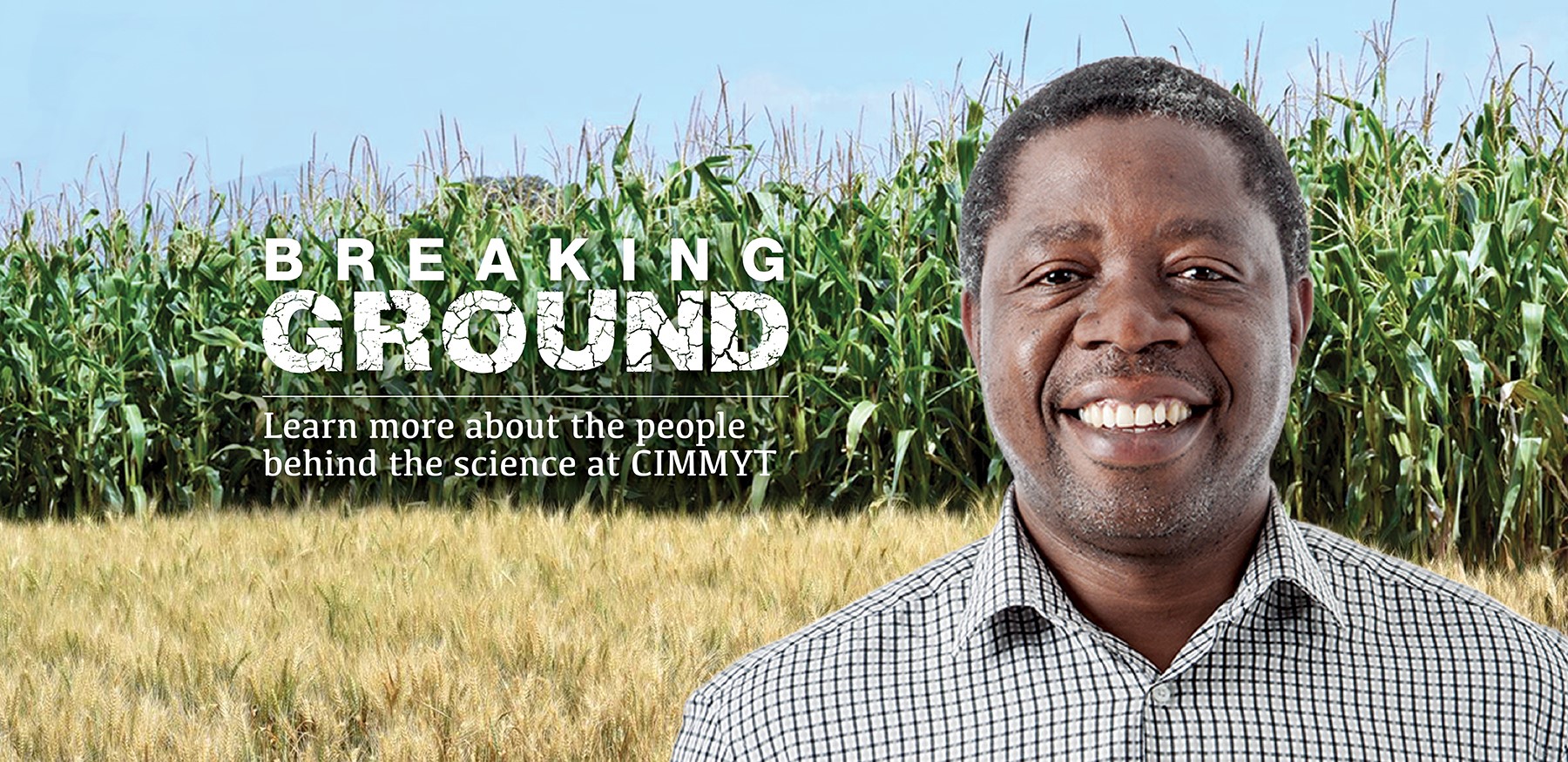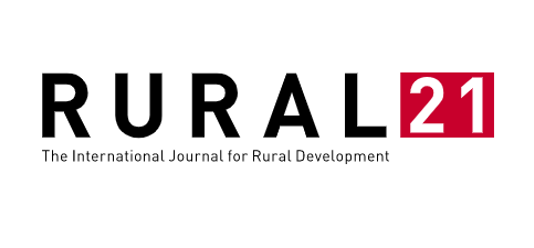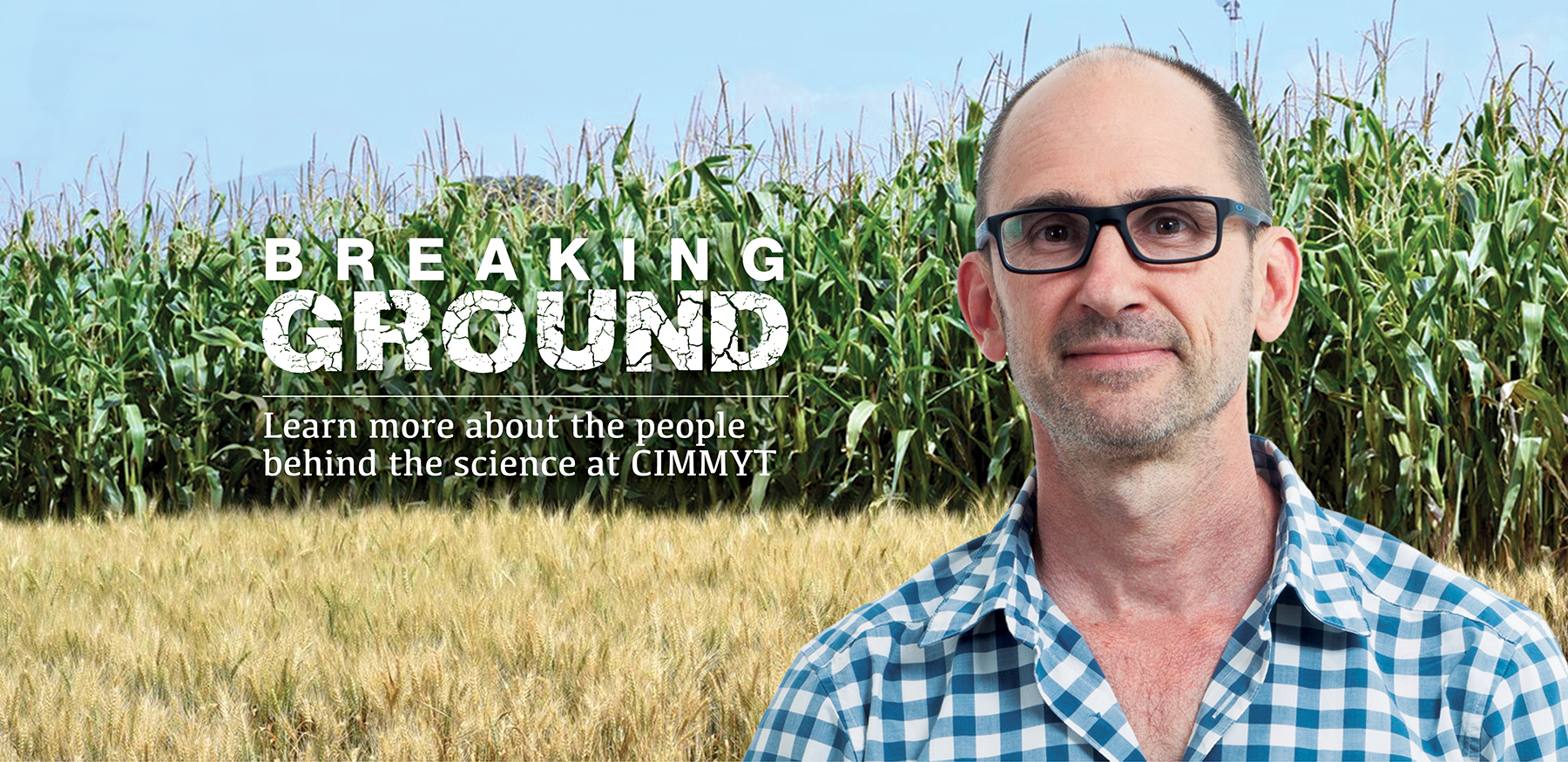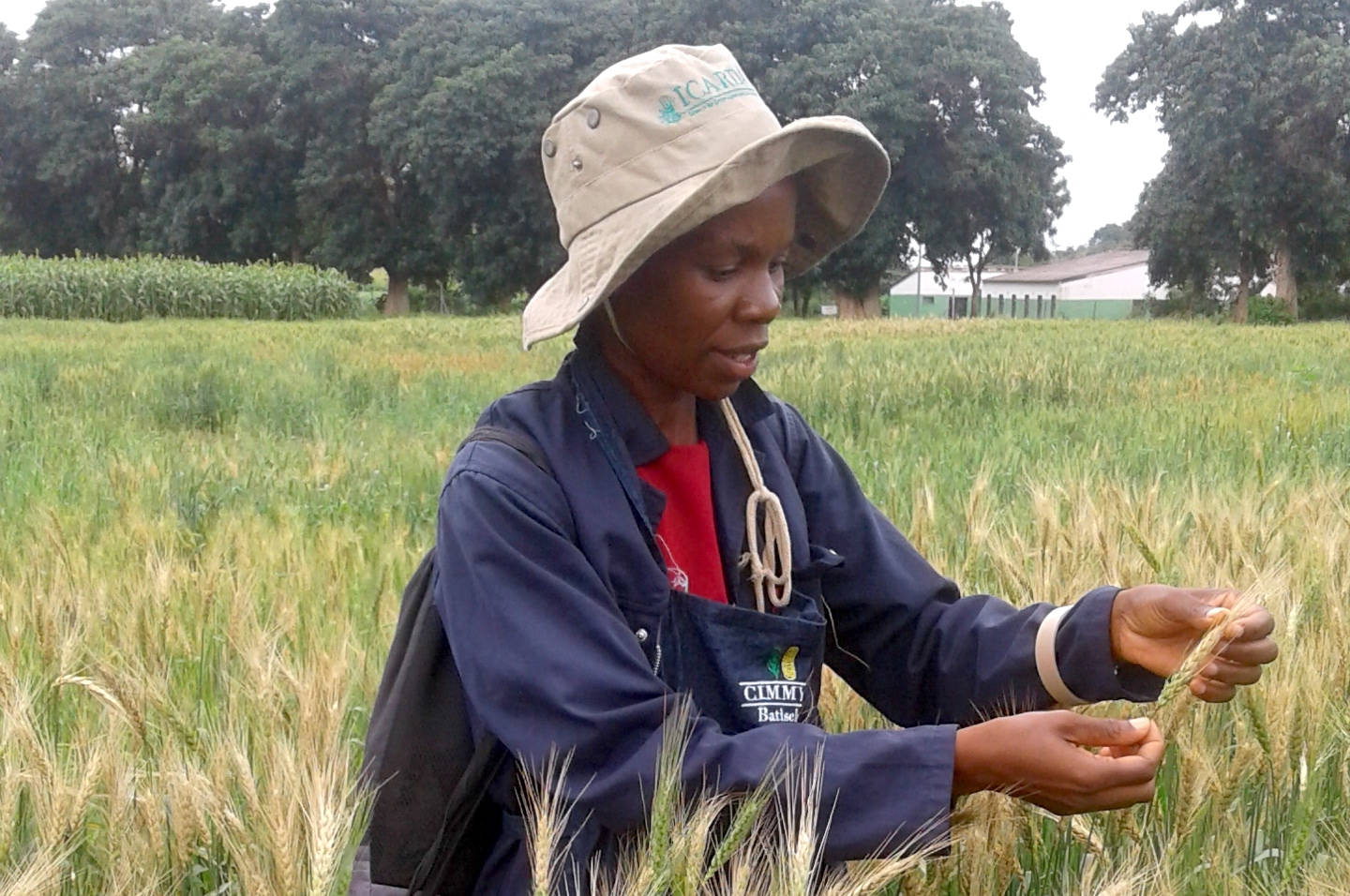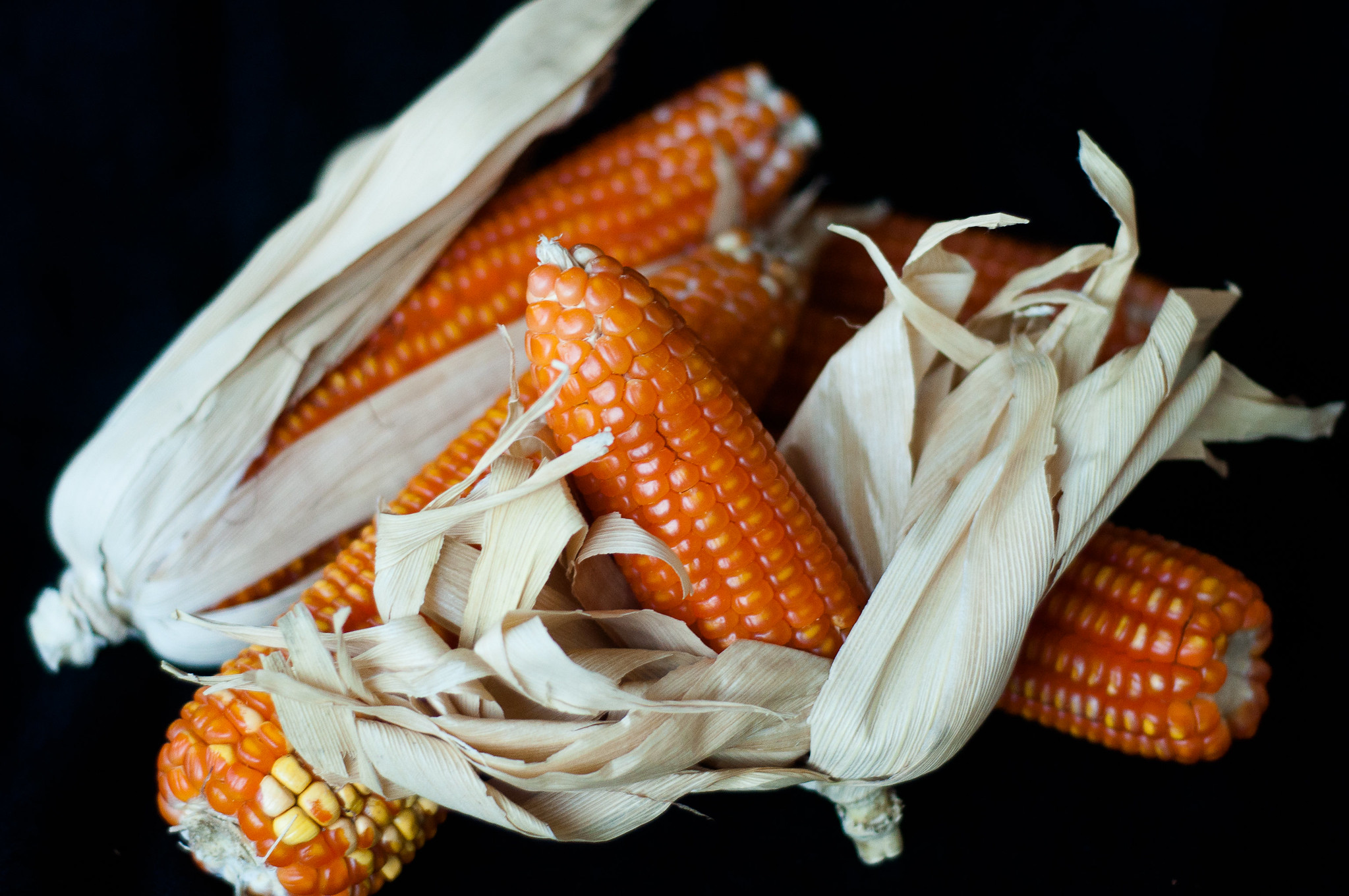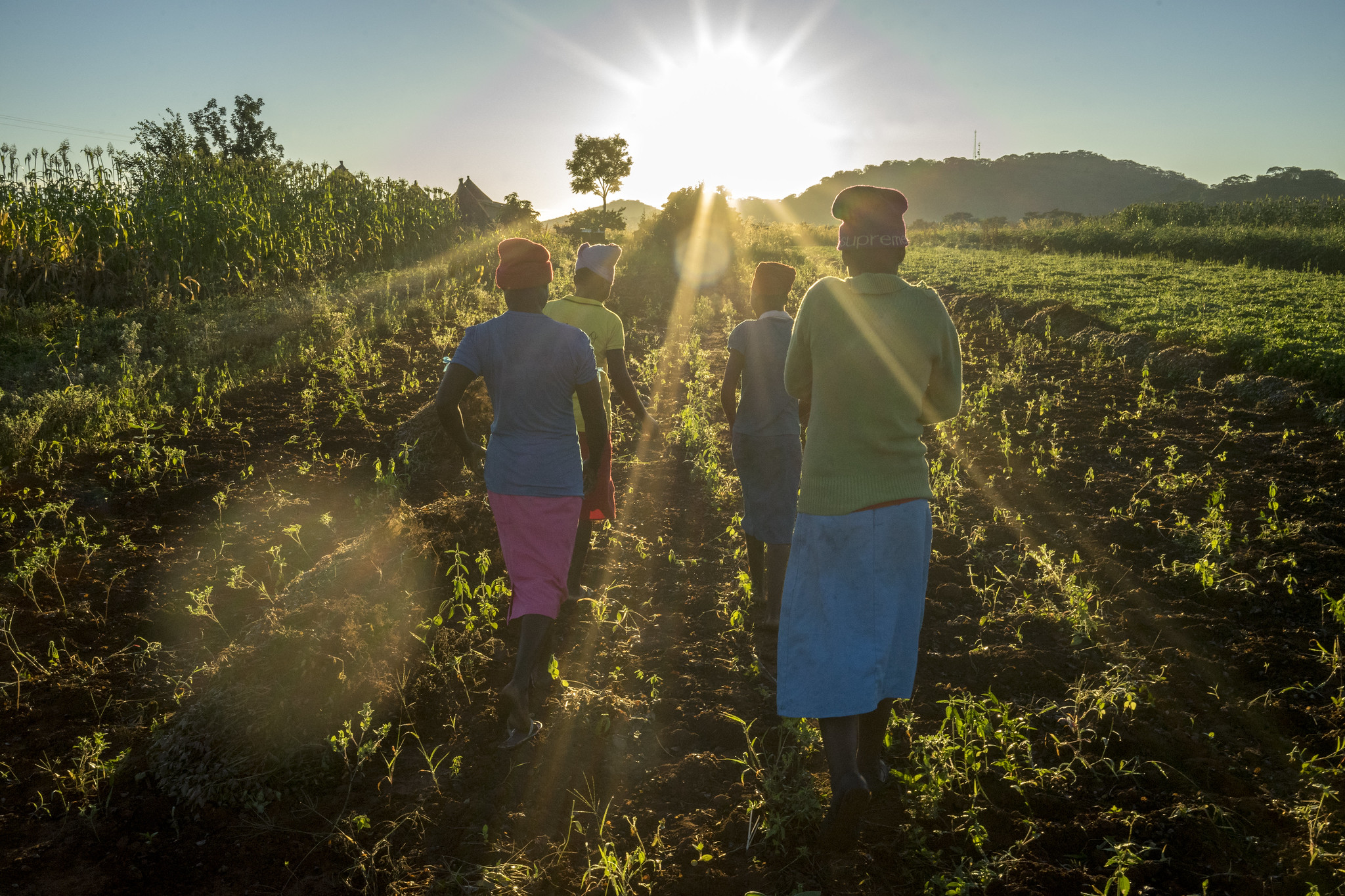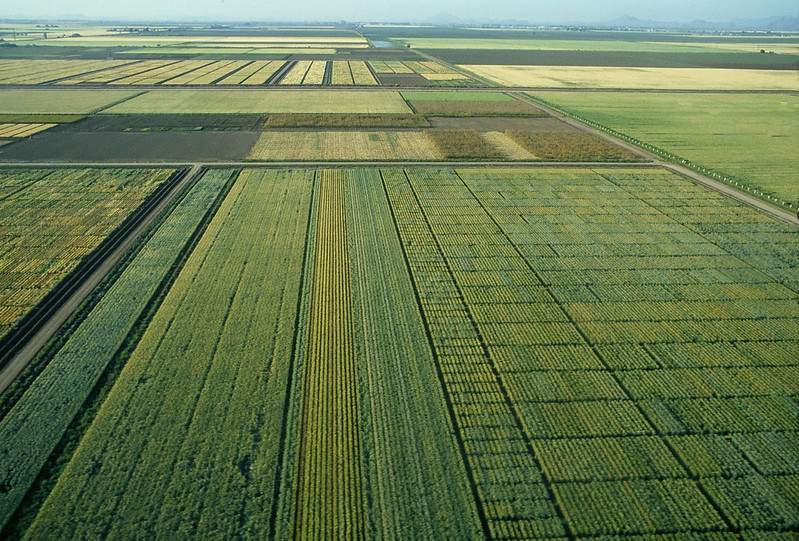Africa
CIMMYT’s work in Africa helps farmers access new maize and wheat systems-based technologies, information and markets, raising incomes and enhancing crop resilience to drought and climate change. CIMMYT sets priorities in consultation with ministries of agriculture, seed companies, farming communities and other stakeholders in the maize and wheat value chains. Our activities in Africa are wide ranging and include: breeding maize for drought tolerance and low-fertility soils, and for resistance to insect pests, foliar diseases and parasitic weeds; sustainably intensifying production in maize- and wheat-based systems; and investigating opportunities to reduce micronutrient and protein malnutrition among women and young children.
CIMMYT-supported researcher earns doctorate for work on gender, maize value chains and food security
 Gender equality, youth and social inclusion
Gender equality, youth and social inclusion
Research was supported through the Stress Tolerant Maize for Africa (STMA) project.
Reflections on resilience
 Climate adaptation and mitigation
Climate adaptation and mitigation
Mother-trial farmers in Zimbabwe’s Mwenezi district share their experiences, lessons and successes in adopting climate-resilient practices.
Somalia agriculture partners learn about integrated fall armyworm control practices
 Capacity development
Capacity development
As the pest continues to cause damage to farmers’ fields, CIMMYT trained national agricultural partners on integrated pest management.
Breaking Ground: Isaiah Nyagumbo advances climate-smart technologies to improve smallholder farming systems
 Climate adaptation and mitigation
Climate adaptation and mitigation
Systems agronomist transforms farmers’ livelihoods through improved crop performance and soil health, promoting sustainable techniques that mitigate climate change effects.
Wheat blast has made the intercontinental jump to Africa
 Environmental health and biodiversity
Environmental health and biodiversity
Source: Rural 21 (9 Oct 2020)
Wheat blast poses a serious threat to rain-fed wheat production in Zambia and raises the alarm for surrounding regions and countries on the African continent with similar environmental conditions.
Food production in Africa: Role of improved seeds in enhancing food security
 Climate adaptation and mitigation
Climate adaptation and mitigation
Source: CGTN Africa (9 Nov 2020)
CIMMYT maize breeder Yoseph Beyene discusses drought-tolerant maize and maize with resistance to fall armyworm.
Efforts in controlling maize disease boosting steady supply of certified seeds
 Environmental health and biodiversity
Environmental health and biodiversity
Source: Kenya Broadcasting Company (5 Oct 2020)
CIMMYT and partners are supporting the commercial seed sector to produce seed free from the maize cause of maize lethal necrosis.
Breaking Ground: Jordan Chamberlin avidly explores the changing landscapes of Africa
 Innovations
Innovations
CIMMYT spatial economist studies how economic behavior varies across diverse geographical contexts, how smallholder farming systems in sub-Saharan Africa are evolving, and the need to revisit agricultural resources and policies accordingly.
Tangible agricultural solutions shine at first online AGRF
 Innovations
Innovations
CIMMYT puts forward integrated systems, healthy diets and One CGIAR agronomic innovation at first-ever virtual edition of the African Green Revolution Forum.
The search is on for nontoxic solutions to fall armyworm across Africa
 Nutrition, health and food security
Nutrition, health and food security
Source: Devex (29 Sep 2020)
Farmers in South Sudan using fall armyworm-specific biological control Fawlingen have shown a 63% increase in yield compared to untreated plots.
Wheat blast has made the intercontinental jump to Africa
 Nutrition, health and food security
Nutrition, health and food security
Researchers in Zambia confirm the arrival of this devastating fungal disease to the African continent.
Partners in nutrition
 Nutrition, health and food security
Nutrition, health and food security
Strong partnerships key to making healthy diets affordable and meeting global nutrition challenges, says CIMMYT researcher Natalia Palacios at 2020 African Green Revolution Forum.
CIMMYT and IITA collaborate to increase adoption of conservation agriculture in southern Africa
 Innovations
Innovations
New project will research and promote the adoption of sustainable farming method and practices.
Retrospective quantitative genetic analysis and genomic prediction of global wheat yields
 Innovations
Innovations
A new quantitative genetics study makes a strong case for the yield testing strategies CIMMYT uses in its wheat breeding program.
